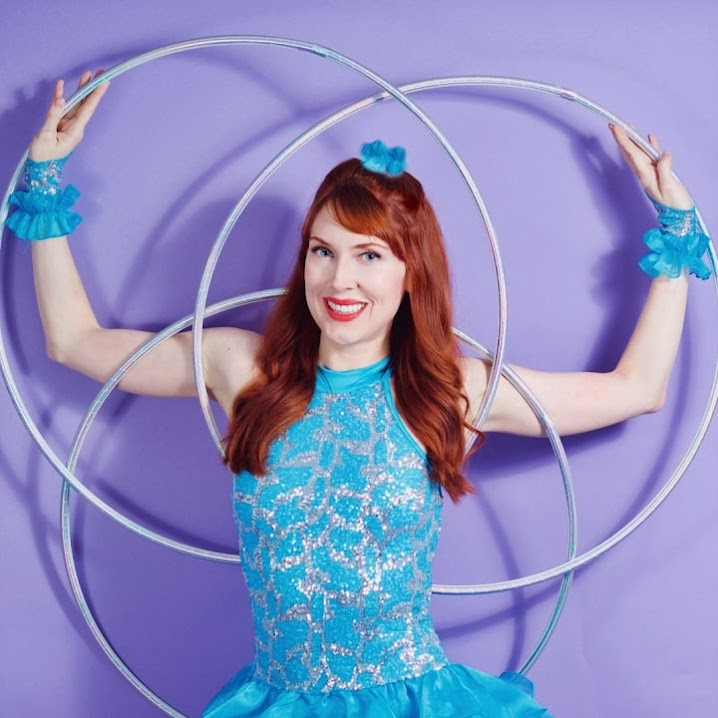Hillia Q&A
January 11, 2023
How did you start hula hooping? What drew you to it?
Nearly a decade ago, I passed by a small yard sale at a church in Ellensburg. I stumbled upon a kid’s hula hoop and thought it might be fun to use for exercise. When I got home I looked up hula hooping on Youtube. I came across a Cirque du Soleil video of Elena Lev performing multiple hoops. Her performance mesmerized me because I had never seen a hula hoop used in such a way. It was magical! This kicks off my deep dive into hoop dancing. I ended up buying the proper type of hoop (adult size) and sought any Youtube tutorials I could find. The rest is history.
What music do you listen to when finding inspiration?
I am inspired by just about any type of music I feel emotionally connected to. My playlists range from Mozart to folk to swing to EDM.
What is one location you dream to perform at?
I’d love to experience busking in different European countries. I’m fascinated by the idea of performing in historic places and being part of one of the oldest forms of theatre: street performance.
What do you wish more people knew about hula hooping?
I wish more people did not assume hula hooping to be a child’s activity. Yes, it can be a child’s toy, but it is so much more than that. Hooping is a form of meditation, exercise, therapy, dance, self-expression, and art for all ages.
What skills have you found helpful in your daily life that you use in hula hooping?
Hooping helped a lot with my self-confidence. I’ve struggled with social anxiety for as long as I can remember. Nothing is more awkward than going out in public and calling a crowd of strangers together for a show they didn’t ask for. I still get nervous performing or speaking in front of others, but I know I can do it now, regardless of how I feel.
How do you prepare for a performance?
There are so many working parts to performance preparation. The night before I’m running through the house charging my equipment, loading equipment in the car, making sure I have water, business cards, planning my costuming, etc. The day of the show, I spend a decent amount of time stretching and warming up. I need a couple hours to do hair and makeup, depending on how complex the costume requirements are. A one hour performance could easily take a half day to prep for. There is also mental prep. You aren’t always in the mood to perform, even when you have to.
Tell me a bit about your master’s research and how it’s applied to your life as a performer!
I got my MA in urban cultural performance studies (an individual studies MA at CWU). I studied the cultural politics of street performers in a corporate-dominated space. My anthropology fieldwork included becoming a street performer. I am not exaggerating by saying it completely changed my life. I did not come back as the same person! One takeaway from my research is that buskers can be both beneficial or a hindrance to corporate environments, depending on if their image and presentation are well or ill-received by the public.

